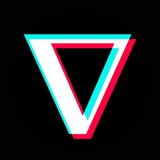Media is too big
VIEW IN TELEGRAM
Just a small announcement 🔥
Our new (with Facebook AI Research) #CVPR21 paper is out!
Discovering Relationships between Object Categories via Universal Canonical Maps
TL;DR: Densepose method for Animals on Steroids which as a byproduct can automatically discover correspondences between 3D shapes of animals using novel cycle losses.
I will present the paper Today (21.06) at 11am EDT / 5PM CET. Feel free to join live Q&A session and ask me a question😉.
🌐 Project page
▶️ Video explanation
📝 Paper
🛠 Source code
Our new (with Facebook AI Research) #CVPR21 paper is out!
Discovering Relationships between Object Categories via Universal Canonical Maps
TL;DR: Densepose method for Animals on Steroids which as a byproduct can automatically discover correspondences between 3D shapes of animals using novel cycle losses.
I will present the paper Today (21.06) at 11am EDT / 5PM CET. Feel free to join live Q&A session and ask me a question😉.
🌐 Project page
▶️ Video explanation
📝 Paper
🛠 Source code
I'm happy to announce that our team (me, Stepan Konev, Kirill Brodt) was awarded🏅 3rd place within the Waymo Motion Prediction Challenge 2021.
To plan a safe and efficient route, an autonomous vehicle should anticipate future motions of other agents around it. Motion prediction is an extremely challenging task that recently gained significant attention from the research community. We present a simple and yet very strong baseline for multimodal motion prediction based purely on Convolutional Neural Networks.
The task is the following: Given agents' tracks for the past 1 second on a corresponding map, we had to predict the positions of the agents on the road for 8 seconds into the future.
Our model takes a raster image centered around a target agent as input and directly predicts a set of possible trajectories along with their confidences. The raster image is obtained by rasterisation of a scene and the history of all the agents. While being easy-to-implement, the proposed approach achieves competitive performance compared to the state-of-the-art methods on the Waymo Open Dataset Motion Prediction Challenge (2021): Our model ranks 1st using minimum average displacement error and 3rd using mAP score.
We wrote a small paper and release our code!
📜Technical report
⚒Code
To plan a safe and efficient route, an autonomous vehicle should anticipate future motions of other agents around it. Motion prediction is an extremely challenging task that recently gained significant attention from the research community. We present a simple and yet very strong baseline for multimodal motion prediction based purely on Convolutional Neural Networks.
The task is the following: Given agents' tracks for the past 1 second on a corresponding map, we had to predict the positions of the agents on the road for 8 seconds into the future.
Our model takes a raster image centered around a target agent as input and directly predicts a set of possible trajectories along with their confidences. The raster image is obtained by rasterisation of a scene and the history of all the agents. While being easy-to-implement, the proposed approach achieves competitive performance compared to the state-of-the-art methods on the Waymo Open Dataset Motion Prediction Challenge (2021): Our model ranks 1st using minimum average displacement error and 3rd using mAP score.
We wrote a small paper and release our code!
📜Technical report
⚒Code
Forwarded from Denis Sexy IT 🇬🇧
Recently I have found an Instagram of artist from Tomsk, Evgeny Schwenk – he redraws characters from Soviet cartoons as if they were real people. I have applied neural.love neural network which made his drawings even more realistic. Just a bit of Photoshop (mainly for hats) and here we go.
I guess Karlsson-on-the-Roof is my best result.
I guess Karlsson-on-the-Roof is my best result.
Aloha guys!
I'm verty excited to announce that I have joined Facebook Reality Labs (FRL) as a Research Scientist! Before that, I interned twice at Facebook AI Research, and now I will work in the FRL division, which focuses on virtual and augmented reality. Moving from academy to industry, I hope that I will still have enough freedom in choosing research directions 😉.
I'm verty excited to announce that I have joined Facebook Reality Labs (FRL) as a Research Scientist! Before that, I interned twice at Facebook AI Research, and now I will work in the FRL division, which focuses on virtual and augmented reality. Moving from academy to industry, I hope that I will still have enough freedom in choosing research directions 😉.
Tech at Meta
Reality Labs | Tech at Meta
Experimented with generating images from text prompts with VQGAN and CLIP. Some cool results:
1."Minecraft Starcraft"
2. "Polygonal fast food"
3. "Holy war against capitalism"
4. "Modern cubist painting"
🤙🏼 Colab notebook
1."Minecraft Starcraft"
2. "Polygonal fast food"
3. "Holy war against capitalism"
4. "Modern cubist painting"
🤙🏼 Colab notebook
